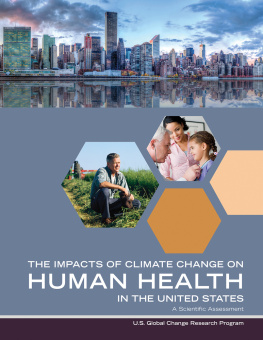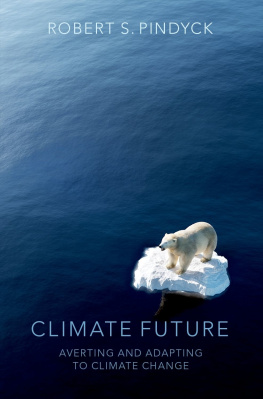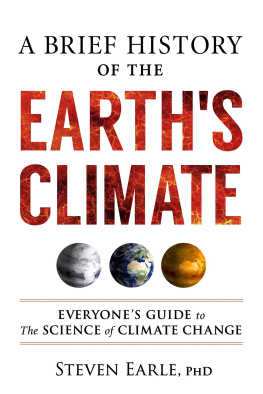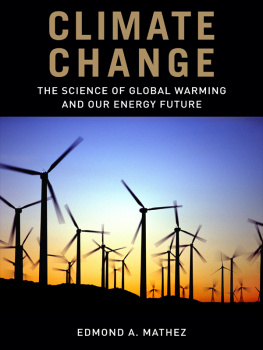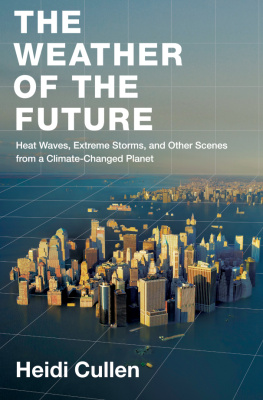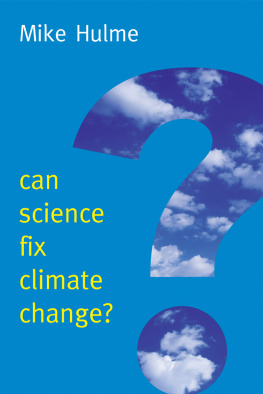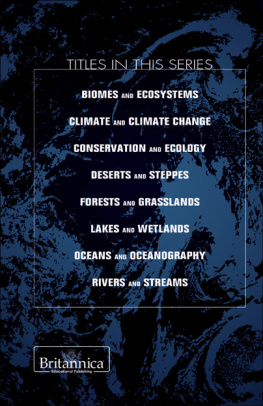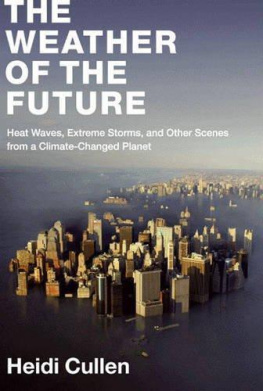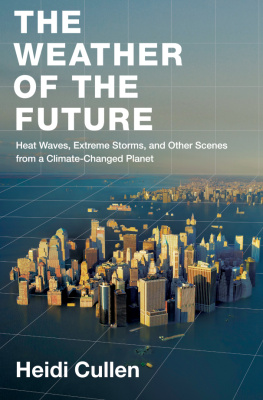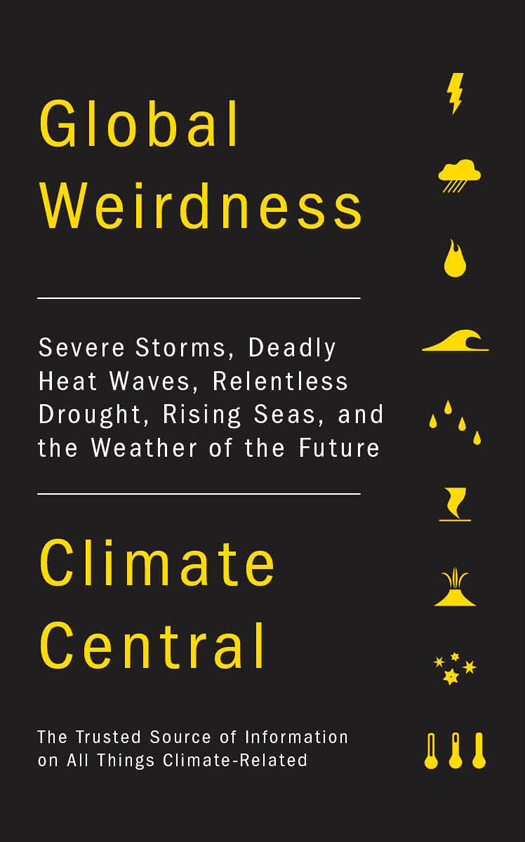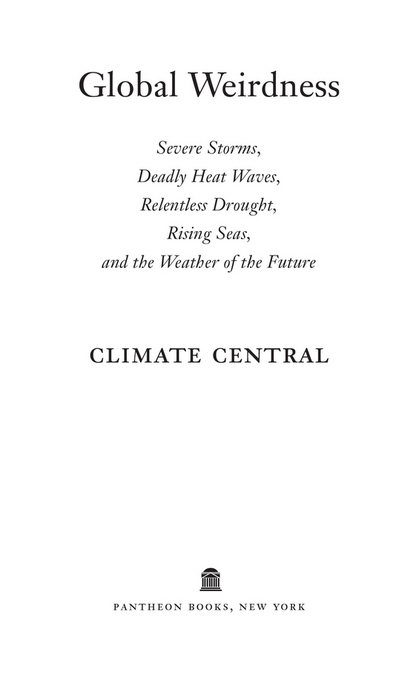Copyright 2012 by Climate Central
All rights reserved. Published in the United States by Pantheon Books, a division of Random House, Inc., New York, and in Canada by Random House of Canada Limited, Toronto.
Pantheon Books and colophon are registered trademarks of Random House, Inc.
Library of Congress Cataloging-in-Publication Data
Global weirdness : severe storms, deadly heat waves,
relentless drought, rising seas, and the weather of the future / Climate Central.
p. cm.
eISBN: 978-0-307-74337-4
1. Climatic changes. 2. Climatic changesForecasting.
3. Climatic changesMathematical models. 4. Greenhouse gasesEnvironmental aspects. 5. Global environmental change. 6. Global warming. 7. Weather forecasting.
I. Climate Central, Inc.
QC903.G58 2012 577.22dc23 2011047699
www.pantheonbooks.com
Jacket design by Brian Barth
v3.1
Contents
I
WHAT THE SCIENCE SAYS
II
WHATS ACTUALLY HAPPENING
III
WHATS LIKELY TO HAPPEN IN THE FUTURE
IV
CAN WE AVOID THE RISKS OF CLIMATE CHANGE?
Introduction
In February 2010, Thomas Friedman made the following plea in his New York Times column:
Although there remains a mountain of research from multiple institutions about the reality of climate change, the public has grown uneasy. Whats real? In my view, the climate-science community should convene its top expertsfrom places like NASA, Americas national laboratories, the Massachusetts Institute of Technology, Stanford, the California Institute of Technology and the U.K. Met Office Hadley Centreand produce a simple 50-page report. They could call it What We Know, summarizing everything we already know about climate change in language that a sixth grader could understand, with unimpeachable peer-reviewed footnotes.
We couldnt agree more. Its quite remarkable that despite the steady growth in scientific understanding about the causes and effects of climate change, and the growing confidence of climate scientists that it poses a potentially serious threat to people, property, and ecosystems, the public seems more confused than ever. Is climate change really happening? If so, and if its happened due to natural causes in the past, why should we think its our fault this time? Havent scientists been wrong before? They cant even predict the weather a week in advance; how can they possibly say anything about what the climate will be like fifty years from now?
A big part of the problem is that climatology is a relatively young and evolving field. Scientists are still learning about Earths climate systemabout how the land, oceans, and atmosphere absorb heat from the sun and move that heat around, and about how heat drives storms, droughts, sea-level rise, heat waves, and more.
But just because they dont know everything about the climate doesnt mean they know nothing. Far from it. They know for certain (and theyve known for more than a hundred years) that carbon dioxide (CO2) in the atmosphere traps the suns heat. They know that burning fossil fuels including coal, oil, and natural gas adds extra CO2 to the atmosphere beyond whats already there naturally. They know that humans have been burning more and more fossil fuels since the Industrial Revolution and that, as a result, levels of CO2 in the atmosphere are more than a third higher than they were a couple hundred years ago. No responsible scientist, including most of those who have been labeled climate skeptics, argues with any of this.
Theres also very little argument over what the broad effects of an increase in CO2 should be. The planet should get warmer. Sea level should begin to rise as warming ocean waters expand and as the warmer air melts glaciers and ice caps. That is exactly what both ground-based and satellite measurements have shown. On average, the oceans are about eight inches higher than they were in 1900, and the temperature is about 1.3F hotter.
Things get more complicated when scientists try to predict whats likely to happen in the future. The reason is that Earth doesnt just respond passively to increasing temperatures: it can react in all sorts of ways that might boost the temperature rise or hold it backand scientists havent yet unraveled all of these possibilities. Increasing cloud cover could reflect extra sunlight back into space. Decreasing ice cover in the Arctic could do the opposite. Melting Arctic permafrost might release extra carbon that has been in a deep freeze for hundreds of thousands of years. Its also not clear precisely how the changes in temperature will translate into changes in local conditions, although its very likely that familiar weather and climate patterns will change, perhaps in surprising ways. Thats why this book isnt titled Global Warming, but rather Global Weirdness, since warming is only part of what we can expect.
These uncertainties are one reason the Intergovernmental Panel on Climate Change, or IPCC, could only narrow the likely temperature rise by 2100 to between 3.2F and 7.2F above what it was in 2000. Another reason is that we dont know if fossil-fuel use will keep going up, or level off, or decline over that period.
This isnt to say that literally every climate scientist agrees with these findings. Some think that the temperature rise will be less than 3.2F, while others think it could be more than 7.2F. But theres no field in science, from genetics to evolutionary biology to astrophysics, where agreement is absolute. The reports issued periodically by the IPCC are meant to be snapshots of what climate scientists generally agree on at a given time (the most recent report came out in 2007; the next one is due out in 2013 or 2014). And despite some very public criticisms about the organization and its procedures, several independent investigations have shown only a tiny handful of scientific errors in the thousands of pages that make up the reports themselves. The same is true of the so-called Climategate episode, in which a few scientists said intemperate things in private e-mails and were somewhat sloppy in their record keeping. Outside investigators have found them guilty of carelessness but didnt find anything to cast doubt on the science itself.
Responsible scientists also know that its important to keep questioning their own results. The first principle, the physicist Richard Feynman once said, is that you must not fool yourselfand you are the easiest person to fool. He meant that scientists need to consider all plausible explanations for what they observe, not just the most obvious or conventional. If Earth is warming, its probably due to greenhouse gases, but it could instead be that the sun is putting out more heat. Scientists have looked carefully at that possibility, and it doesnt seem to hold up. Theyve also looked at the role of volcanoes and other natural factors that have caused warming or cooling in the past, and so far nothing explains the warming as well as greenhouse gases do.
Finally, the public has undoubtedly been confused by statements about climate change that sound authoritative but are simply false. Take the often-repeated assertion that global warming stopped in 1998. If you look at a graph spanning the years 19982010, that might appear to be close to the truth. But 1998 was an unusually warm year, so its a misleading starting point. If you start in 1997 or 1999, things look very different. And if you zoom out to look at a graph spanning the years 19002010, its clear that the first decade of the twenty-first century is warmer than any decade during that 110-year period.


